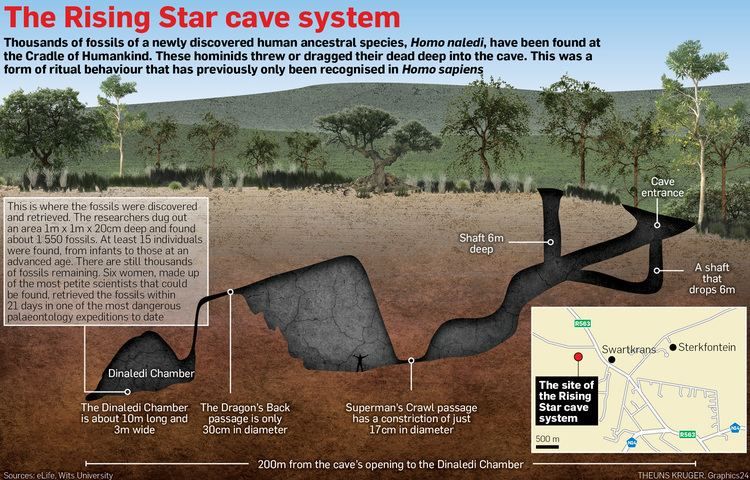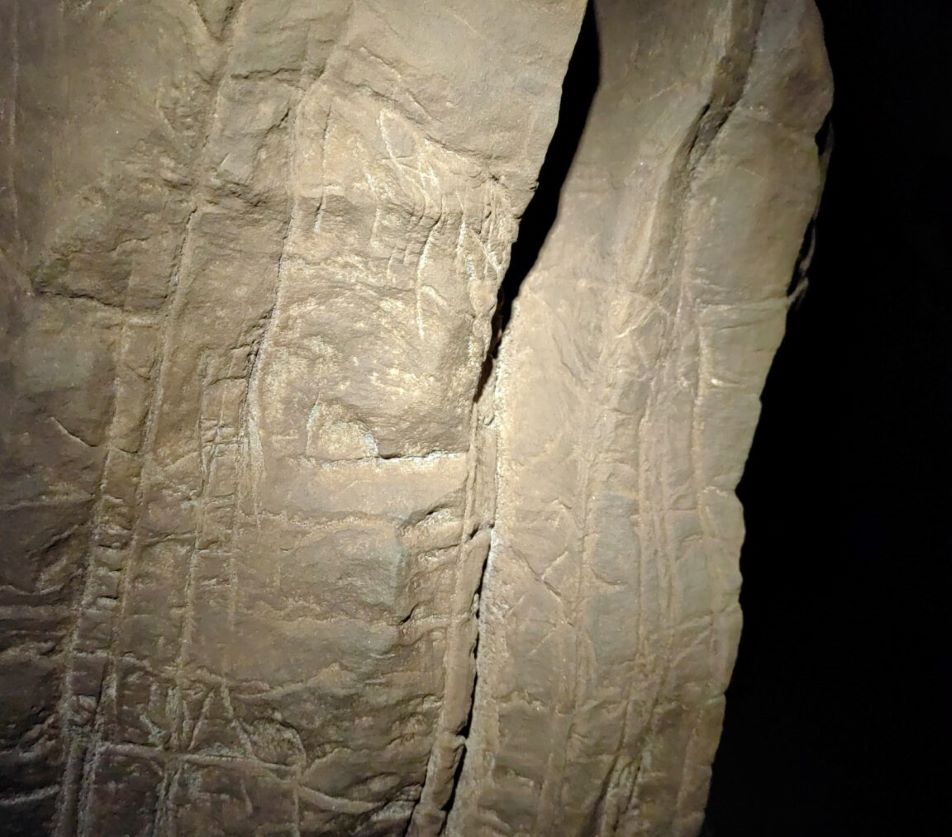A pre-Sapiens hominin species used meaningful symbols over 200,000 ago
Fresh scientific evidence has emerged that intentional burials and the use of symbols by other hominins hundreds of thousands of years before Homo sapiens was widespread.
The findings, originating in the Rising Star cave system in South Africa and revealed by National Geographic explorer Lee Berger and his team, suggest that Homo naledi, an extinct hominin species, engaged in behaviors such as burying their dead and using symbols for meaning-making, the organization said on its blog.
More to read:
Why did our ancestors eat each other 1.45 million years ago?
Previously associated only with modern humans and Neanderthals, these practices challenge conventional views on human evolution.

Funded by the National Geographic Society, the research identified depressions in the Rising Star cave system chambers where bodies of Homo naledi adults and children under 13 were intentionally deposited in fetal positions, hinting at deliberate burials.
Remarkably, these interments predate the earliest known Homo sapiens burials by at least 100,000 years, indicating that such practices may not have been exclusive to hominins with larger brain sizes, a fact reflected in a number of studies (here, here, and here).
In addition to intentional burials, the team uncovered engraved symbols on cave walls, estimated to be 241,000 to 335,000 years old. These symbols, including cross-hatchings and geometric shapes, were found on carefully prepared and smoothed surfaces, created using pointed or sharp tools.
More to read:
Human ancestors were almost extinct 900,000 years ago
Similar symbols have been observed in use by Neanderthals and early Homo sapiens, representing a significant cognitive step in human evolution for signifying, recording, and transmitting information.

The Rising Star cave system has been known for yielding valuable hominin fossils over the past decades.
Lee Berger will release a book titled "Cave of Bones: A True Story of Discovery, Adventure, and Human Origins," to provide a detailed account of this scientific breakthrough.
These fascinating findings will also be featured in Netflix's docuseries event, "UNKNOWN: Cave of Bones," premiering on 17 July 2024.
***
NewsCafe is a small, independent outlet that cares about big issues. Our sources of income amount to ads and donations from readers. You can buy us a coffee via PayPal: office[at]rudeana.com or paypal.me/newscafeeu. We promise to reward this gesture with more captivating and important topics.






![[video] Kawasaki unveils Corleo, a hydrogen-powered robotic horse with AI management](/news_img/2025/04/11/news2_mediu.jpg)
